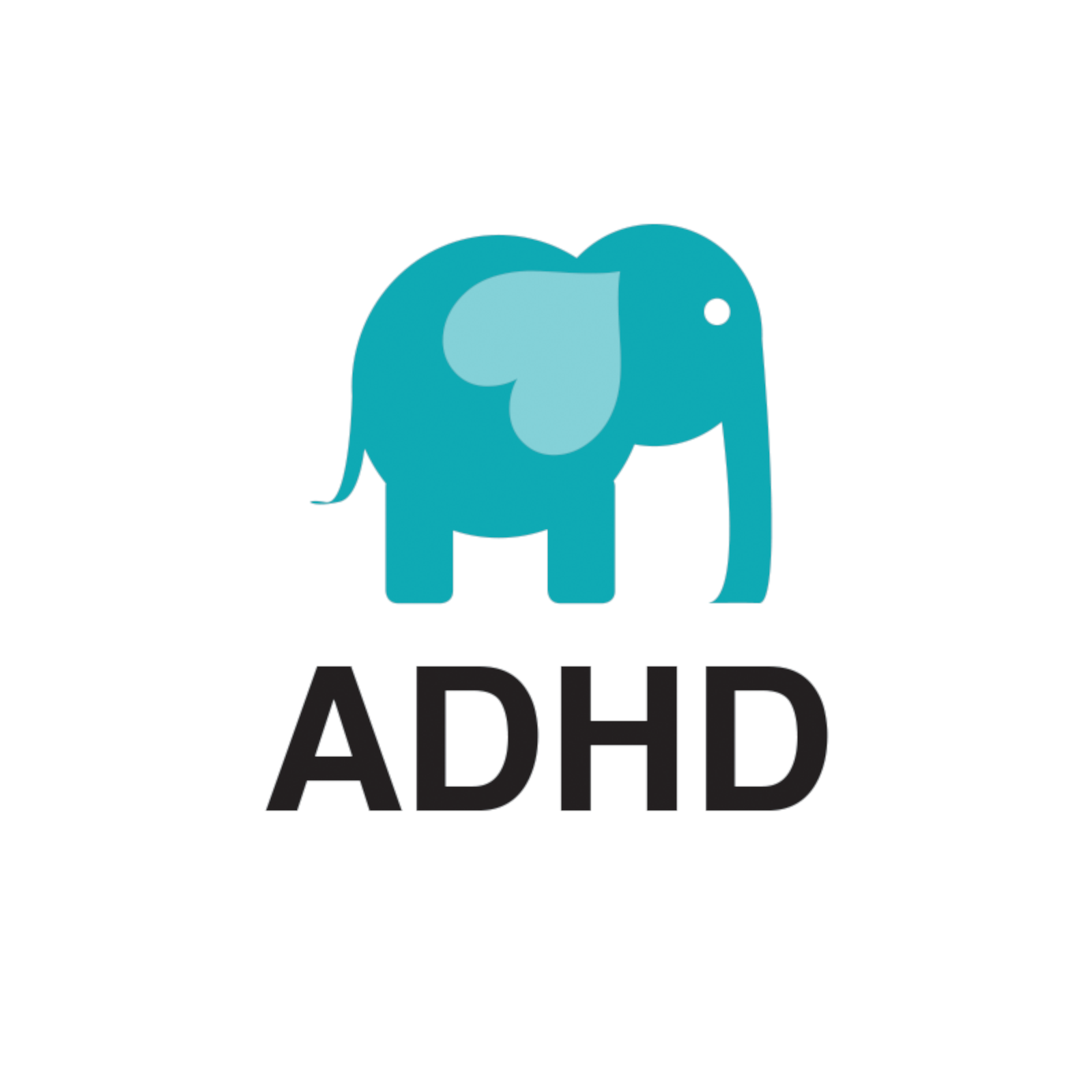
818.4K
Downloads
213
Episodes
Drawing on years of experience working with families, Parenting Coaches Siope Kinikini and Kimber Petersen share how families can improve, heal, and find success using the proven methods of the Teaching-Family Model. Visit smarterparenting.com to learn more.
Episodes
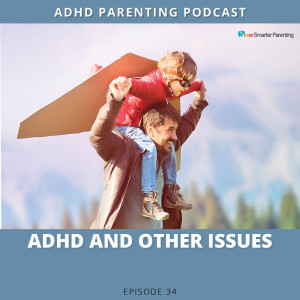
Wednesday Oct 16, 2019
Ep #34: ADHD and other issues
Wednesday Oct 16, 2019
Wednesday Oct 16, 2019
Children having ADHD and other issues together occurs frequently. Having multiple problems is called comorbidity.
ADHD and comorbidity are frequently manifested in behavioral issues, issues with peers, learning disorders, increased risk of injury, anxiety, depression, or conduct disorders such as ODD.
Understanding ADHD diagnosis and additional issues are crucial for parents. It helps them have realistic views of treatments and what their child is going through. It also helps them better engage with their children.
Parents should report all behavior to their child’s doctors as that information will be important in determining the best treatment course. Doctors will decide what to treat first based on the exhibited behaviors. They may recommend treating one of the other issues before focusing on your child’s ADHD symptoms.
More information about ADHD and other issues is on SmarterParenting.com.
Dealing with ADHD alone can be challenging, but dealing with multiple issues at once can be overwhelming for many parents. It can lead to feelings of hopelessness when dealing with ADHD and other issues.
The behavior skills on Smarter Parenting help parents deal with their feeling of hopelessness as it provides parents the tools and resources they need, including coaching. Our ADHD parenting coach, Siope Kinikini, is available to help parents gain clarity and get real solutions for problems. Sign-up for a free 15-minute coaching mini-session. https://www.smarterparenting.com/coaching/
For full show notes and transcript visit https://www.smarterparenting.com/adhd-parenting-podcast/https://www.smarterparenting.com/adhd-and-other-issues/
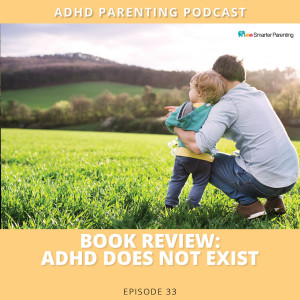
Monday Oct 14, 2019
Ep #33: Book review | ADHD Does Not Exist by Richard Paul
Monday Oct 14, 2019
Monday Oct 14, 2019
Join the Smarter Parenting Club. https://club.smarterparenting.com/
In today’s episode, ADHD Parenting Coach Siope Kinikini discusses the book, ADHD Does Not Exist by Richard Saul.
The idea that ADHD does not exist is a polarizing statement for many, which is why we wanted to review it. We wanted to understand why he was drawing that conclusion and what we could learn from him.
In the last 20 years, there has been a considerable increase in children and adults diagnosed with ADHD and being prescribed medication. Behavioral neurologist Richard Saul wanted to understand the rise and what it meant.
Leading Richard Saul to believe that there are symptoms that look like ADHD that aren’t ADHD and the importance of getting the correct diagnosis. If the diagnosis is wrong, you could be giving your child something that makes their symptoms worse.
His big push is to take a look at the ADHD symptoms and to rule out other issues that could be presenting the same symptomology before diving directly into an ADHD diagnosis and medication. For example, trauma or sleep issues have many similar symptoms to ADHD.
Understanding an ADHD diagnosis allows parents to include behavioral treatment for ADHD that gives kids the tools they need to addresses the symptoms.
It’s okay to get multiple perspectives and to continue to do so as your child grows to address the symptoms they are exhibiting.
We do not believe that ADHD does not exist. We know that it does.
We do agree that parents, and clinicians, need to be careful of jumping directly to an ADHD diagnosis and medication without taking a good look at all the symptomology and ruling out all possibilities. We also agree that behavioral interventions are a vital part of a child’s ADHD treatment plan has it helps them learn to deal with symptoms.
If you would like to read the book yourself, you can purchase it here: https://amzn.to/2Mxpsvc
For full transcript and show notes visit: https://www.smarterparenting.com/adhd-parenting-podcast/
Just so you know, Smarter Parenting may collect a share of sales or other compensation from the links on this webpage. We are a participant in the Amazon Services LLC Associates Program, an affiliate advertising program designed to provide a means for us to earn fees by linking to Amazon.com and affiliated sites.
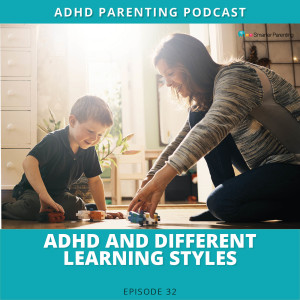
Wednesday Oct 09, 2019
Ep #32: ADHD and different learning styles
Wednesday Oct 09, 2019
Wednesday Oct 09, 2019
Understanding different learning styles allows you to teach your child in a way that makes the most sense to them. Different types of learners need different things to be successful. It’s important to encourage your child to develop learning strategies that work for them.
While there is some variation in learning styles, we are focusing on the VARK categorization. V stands for visual. A for aural or auditory, R is for a read or write. K is for kinesthetic.
Children can have more than one learning style, but they tend to favor one over the rest.
Children who are visual learners learn best through a visual representation of information. They like the data presented in diagrams, maps, graphs, charts, flow charts. For kids who are visual learners, they do well with visual instructions, so things like a chore chart or expectations chart work well for them.
Children who are aural or auditory learners learn best from lectures, group discussions, radio, and from conversations. For kids who are auditory learns, they do well with verbal instructions.
Children who are read/write learners learn best from text-based input/output, such as writing things down or reading lists and charts. For kids who are read/write learners, they do well when they can write down instructions or read instructions.
Children who are kinesthetic learners learn best when they are moving. For kids who are kinesthetic, they do well when they can add movement to what they are learning, such as playing with a toy or taking a walk.
Often ADHD children struggle with learning because we are presenting information in a style that doesn’t work for them. You’ll be able to determine which style they prefer by observing when they are successful learning information. Once you understanding which learning style your child with ADHD prefers, you can then present information using that style. Presenting information in a learning style they prefer will allow you to spend less time giving instructions while finding greater success.
You can also help them find strategies for different learning styles that aren’t their preferred learning style.
Stuck on determining which learning style your child prefers? Join the Smarter Parenting Club and our ADHD Parenting Coach can help you find real and doable learning style strategies. https://club.smarterparenting.com/
For full notes and transcripts visit https://www.smarterparenting.com/adhd-parenting-podcast/
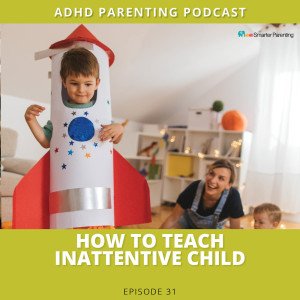
Monday Oct 07, 2019
Ep #31: How to teach an inattentive child
Monday Oct 07, 2019
Monday Oct 07, 2019
Join the Smarter Parenting Club. The Smarter Parenting Club is a place where you can find exclusive content and a parenting community. https://club.smarterparenting.com/
The elements taught on Smarter Parenting helps parents how to teach an inattentive child how to be successful.
While many parents focus on the hyperactivity part of ADHD, it can be easy for the inattentive symptoms to be overlooked. ADHD inattentive type symptoms include becoming distracted, trouble concentrating, becoming bored quickly, difficulty learning or organizing new information, frequently daydreaming, difficulty following instructions, seems not to listen when spoken to directly, and creating more mistakes.
Understanding inattentive ADHD symptoms allow you to keep your cool and to apply inattentive strategies.
Children who have inattentiveness ADHD have difficulty focusing because they are focusing on everything at once. They have no idea how to filter out all the information they are receiving. As such, they have difficulty paying attention or Following Instructions even when directly talked to. It can be frustrating if you’re talking to them, and it feels like they are ignoring you.
Parents can help guide their children to focus on what they need to focus on by being specific is what you want them to do. For example, you can tell them to focus on the tone of your voice or to make a particular breathing pattern.
Doing those things allows your child to see that they have the ability to focus on one thing instead of being bombarded by multiple items at once.
Inattentive children also have a harder time following verbal commands, so giving them visual cue or lists are more effective.
On the Smarter Parenting website, you’ll find visual chore charts that can be modified to help walk your child through multiple tasks.
Move-along chore chart: knight
Move-along chore chart: princess
For full show notes and transcript visit: https://www.smarterparenting.com/adhd-parenting-podcast/
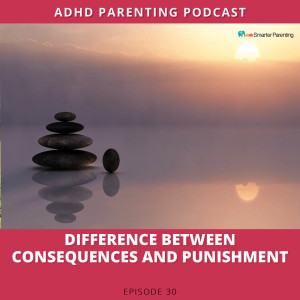
Wednesday Oct 02, 2019
Ep #30: Difference between consequences and punishments
Wednesday Oct 02, 2019
Wednesday Oct 02, 2019
Many parents view consequences and punishments as the same thing. They aren’t. Punishments are meant to cause harm and to scare your child into doing what you want them to do. A consequence, on the other hand, is intended to teach your child.
While punishments work short term, they damage the relationship long-term. Your child will come to fear you as punishments are generally personal and are often meant to humiliate. Consequences build the relationship with your child as your child understands that you’re disappointed in their behavior and not in them. Consequences occur naturally, are part of daily life, and are positive discipline for kids.
What do consequences versus punishments look like? Let’s say your child broke a plate. A punishment would be to break your child’s favorite toy. A consequence would be that your child would have to clean up the plate and do extra chores as restitution.
Kids need consequences. Consequences help them navigate the world and allow them to take responsibility for their actions. If parents don’t teach their children consequences, the world will.
When ADHD children aren’t doing what they should be, it can be easy to go straight to punishment mode as we want/need our child to behave.
Parents need to parent. They need to set healthy boundaries for their child and then follow through with consequences when those expectations aren’t met. Consistency is so important when it comes to following through with consequences.
Parents need to teach a child how to prevent problems.
For almost 50 years, Utah Youth Village has used the elements of the Teaching-Family Model to help parents better understand teaching versus punishing. Even with the most challenging kids, consequences work better than punishments in changing behavior, and teaching works better than consequences.
Teaching your child what they should do when they should do next time is forward-thinking. It helps them see they have options when it comes to behavior.
Teaching models good behavior. Teaching is positive. Teaching is empowering as it gives them options.
When you teach your child what they should do, you’re helping them avoid negative consequences. When they don’t feel like they are getting trouble all the time, it increases their self-worth.
The best way to decrease the number of consequences you give is to focus on the positive using Effective Positive Rewards. Effective Positive Rewards gives children an incentive to behave better. Effective Positive Rewards can be used for improvement--no matter how small. Effective Positive Rewards doesn’t have to be expensive or complicated. Often something little as getting a sticker, being able to read a book with mom or dad, or five extra minutes on devices, will be motivating to behave better.
When parents understand the difference between teaching versus punishing they can build relationships and set their child up for success.
For full show notes and transcript visit:https://www.smarterparenting.com/adhd-parenting-podcast/
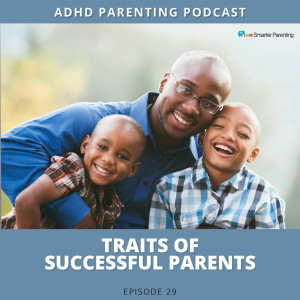
Monday Sep 30, 2019
Ep #29: Traits of successful parents
Monday Sep 30, 2019
Monday Sep 30, 2019
Successful parents all do the same things. In today’s episode, ADHD Parenting Coach, Siope Kinikini shares the practical parenting skills that successful parents have mastered.
Raising successful kids is a skill, and like any skill, it can be learned. The behavior skills taught on Smarter Parenting are the building blocks parents need to master if they want to build a strong relationship with their child.
Parents who raise healthy and successful children recognize that their job is to help their child learn to function without them.
The first thing parents do when raising successful kids is setting boundaries and allow for those boundaries to change as children grow. Children need boundaries. Boundaries help them navigate the world. As they grow, those boundaries change. The limits they needed at three are not the same as those at 16. Successful parents recognize that and allow their children to make decisions as they grow.
Allowing children the freedom to make decisions helps them be able to transition to adulthood. They feel confident in their ability to make decisions and their ability to live without you.
Each child will progress at a different rate, and the freedom you offered one child at a specific age may not work for another child.
Second, successful parents are consistent. Consistency means following through with whatever rules you have established in your home. This means being consistent with both rewards and consequences.
When you are consistent, it allows your child to trust you as you provided stability. When they trust you, you can build a relationship, and that leads to success for kids.
Parents can still be consistent even they allow their children more freedom.
As you apply these parenting strategies, you will help your child gain independence and the confidence they need to navigate life successfully.
If you’re needing help in learning effective parenting skills, Smarter Parenting offers parenting coaching. This coaching is done for the privacy of your home and helps you come up with a plan of action that is specific to your family!
Start becoming a successful parent today. Sign-up for a free mini-session. https://www.smarterparenting.com/coaching
Smarter Parenting is a division of Utah Youth Village. Utah Youth Village has helped thousands of families learn the behavior skills needed to be successful. Learn more about Utah Youth Village and it's programs to help families here: http://www.youthvillage.org/theme/default/about-the-village/
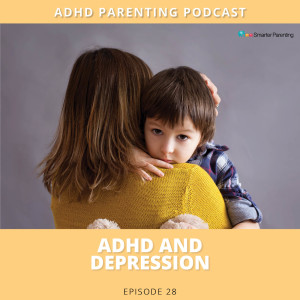
Wednesday Sep 25, 2019
Ep #28: ADHD and depression
Wednesday Sep 25, 2019
Wednesday Sep 25, 2019
Many children with ADHD also have other issues. This is called comorbidity. It may mean that they suffer from ADHD and depression, or ADHD and anxiety.
Understanding that your child may be suffering from more than one issue is helpful as your doctor or therapist may recommend treatment for those issues. You may feel that taking time to treat another issue means your child may not be getting the ADHD help they need.
When a doctor or therapist sees a client, they look at all the issues and will make recommendations on the issue they think need to be addressed first. The recommendation to deal with another issue first does not mean that help for ADHD is being put on the shelf. By focusing on the issue that is causing the most difficulty in everyday life and creating change in that area, you’ll notice that an improvement in all behavior.
It’s always important to make sure you and your therapist/doctor are on the same page with treatment and why that treatment is recommended. It’s not helpful if a therapist or doctor isn’t keeping parents informed of what they are working on. Or if a parent isn’t open about what is happening at home.
Because ADHD and depression occur together frequently, it’s important to know what depression in children looks like as symptoms of depression may manifest differently in children than in adults. When a child is unable to function in school or at home, it can lead to feelings of depression and self-esteem issues. Having depression awareness will allow parents to take a look at their actions and if they are making the situation worse.
Parents have options when dealing with ADHD and depression. The behavior skills on Smarter Parenting are one facet of help available to parents.
For additional information about ADHD and depression or full show notes, visit: https://www.smarterparenting.com/adhd-parenting-podcast/
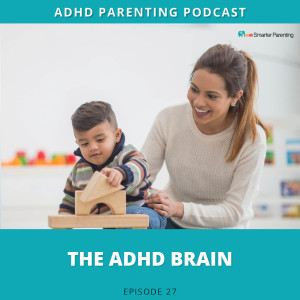
Monday Sep 23, 2019
Ep #27: The ADHD brain
Monday Sep 23, 2019
Monday Sep 23, 2019
The ADHD Smarter Parenting Podcasts will be released twice a week on Monday and Wednesday until the end of 2019.
In 2017, a study was published in The Lancet Psychiatry Journal about differences in the ADHD brain. By studying those with ADHD and those without ADHD, researchers found small differences in brain mass between adults and kids with ADHD and those without ADHD. The difference was most noticeable in kids and less noticeable in adults. Knowing this information is a significant first step to understanding ADHD even better.
Their findings suggested that ADHD is a disorder of the brain with delays in the development of specific brain regions. This may account for why kids with ADHD tend to act out and have difficulty with being able to control their behavior.
Behavioral strategies for ADHD allows kids to learn specific tools that will enable them to manage their ADHD symptoms. Neuroplasticity of the brain, or being able to train the brain, is possible. Some things can be done to strengthen the ADHD brain and make it stronger, including behavior skills. ADHD behavior management strategies should include the behavior skills taught on SmarterParenting.com.
If ADHD is a disorder of the brain, why aren’t we able to better study or diagnosis it through a test? An MRI only shows a snapshot of what is happening in the brain at that moment. Which doesn’t always give a complete picture of behavior. An ADHD diagnosis is made only after behavior is observed over an amount of time, and that behavior meets criteria.
This study is exciting research for ADHD and a great beginning to understanding better how the ADHD brain works.
Retraining your child with ADHD brain can be frustrating. Having an ADHD Parenting Coaching allows for clarity and helps you feel confident in what you’re doing. For a limited time, we are offering free 15-minute mini-sessions. Sign-up today.
For full show transcript visit https://www.smarterparenting.com/coaching
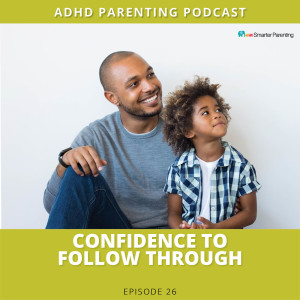
Tuesday Sep 17, 2019
Ep #26: Confidence to follow through
Tuesday Sep 17, 2019
Tuesday Sep 17, 2019
Beginning September 23, we will release two podcasts a week on Monday and Wednesday through the end of 2019. We look forward to bringing you more ADHD content!
Confidence to follow through. What does that mean? Parenting is challenging, and it can be difficult to have confidence in our abilities. If you’ve ever asked yourself: Am I doing the right thing? Why isn’t this working? I feel so overwhelmed I don’t what to do?
First of all, you’re not alone. Second, our goal at Smarter Parenting is to give you parenting help. We want to provide you with confidence in your ability to handle any behaviors and create a better family life.
Without a proper structure, we will all burn out or become overwhelmed. Parenting skills give parents the structure they need to cope with. But more importantly, it gives you confidence that you can handle any behavior.
One of the hardest things for any parent is being able to follow through. We either overpromise (if you do x you’ll get y). Or, we give consequences that we aren’t able to follow through with (you’re grounded until you’re 18).
When you have the confidence to follow through, you’ll set the expectations for your child. Children thrive on knowing what is expected of them.
Having confidence is not always having the answer. Instead, it’s moving towards what you need for your child. It means evaluating what you’re doing and determining what is working and what isn’t and what adjustments need to be made.
ADHD Parenting Coaching is the parental guidance you’re looking for. Our trained coaches know the struggles you’re working through and know what tools you need to have confidence in your parenting abilities.
Start becoming confident in your parenting today. Sign-up for our ADHD Parenting Coaching. https://www.smarterparenting.com/coaching
For full show notes, visit: https://www.smarterparenting.com/category/podcasts/adhd-podcasts/
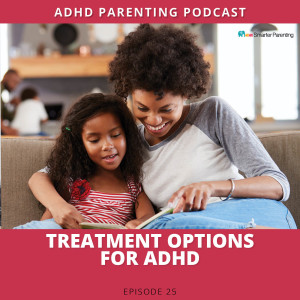
Monday Sep 09, 2019
Ep #25: Treatment options for ADHD
Monday Sep 09, 2019
Monday Sep 09, 2019
There are multiple ADHD treatment options. Understanding what they are and why they are being recommended is helpful as treatment courses are set.
When ADHD treatment options are present, it can be easy to dismiss individual options. We strongly advocate that you keep an open mind to any recommended treatment options. Treatment for ADHD could include medication, therapy, and ADHD behavior intervention, such as learning behavior or social skills.
Because every child is unique and responds to medication differently, we are not here to give medical advice. We are here to walk you through therapy and ADHD behavior interventions that help kids with ADHD.
Helping kids with ADHD may involve therapy. For many parents, therapy may seem scary or unfamiliar, or a label they don’t want for their child as therapy has gotten an undeserved bad rap. Treating ADHD should be a whole-body process, including taking care of our mental health. Therapy allows a child to discuss how ADHD affects them, what their environment is like, and thoughts and feelings. They learn how they respond to certain stimuli and what they can do to work through things healthily.
Social or behavioral skills is another route that a doctor may recommend. Behavioral or social skills are skills that are implemented in the home and is a team effort between parents, caretakers, and the child. The skills we teach on Smarter Parenting are social and behavioral skills and are most effective when everybody is on the same page in their use.
If you are using behavior skills and aren’t seeing the change you expect, it’s probably because a component needs to be modified. An ADHD Parenting Coach can help you find clarity in what needs to be modified. An ADHD Parenting Coach can take a look at the big picture and help you see areas that need improvement while giving you confidence in your abilities.
ADHD Parenting Coaching can be transforming and help you create the family you want. Sign-up for an individualized ADHD Parenting Coaching session today and take advantage of our free 15-minute mini-sessions. https://www.smarterparenting.com/coaching/
When deciding treatment for your ADHD child, it’s vital to keep an open mind when it comes to all ADHD treatment options. The goal of your doctors is to help your child be healthy and happy.
